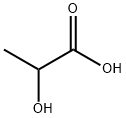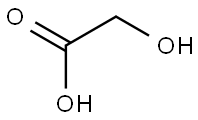1,3-Dioxan-2-one homopolymer
- CAS NO.:31852-84-3
- Empirical Formula: C4H6O3
- Molecular Weight: 0
- EINECS: 608-674-3
- SAFETY DATA SHEET (SDS)
- Update Date: 2025-01-27 09:38:02

What is 1,3-Dioxan-2-one homopolymer?
The Uses of 1,3-Dioxan-2-one homopolymer
1,3-Dioxan-2-one homopolymer can be copolymerized with other lactone monomers to produce materials with tunable physical and chemical properties. After cross-linking a flexible and elastic (co-)polymer network is obtained, with properties similar to those of polydimethylsiloxane (PDMS) rubber.The materials can be used in biomedical applications. PTMC-based polymers degrade in vivo by an enzymatic surface erosion mechanism without releasing acidic degradation products, which makes these polymers well suited as matrices for the preparation of biodegradable composites for bone tissue engineering and drug delivery.
Production Methods
The direct polymerization method is a continuous esterification reaction
Open-loop polymerization includes three reaction steps: oligomerization, depolymerization and ring opening, which can achieve precise control of the polymerization reaction
General Description
1,3-Dioxan-2-one homopolymer is an amorphous polymer with low glass transition, prepared by ring-opening polymerization of cyclic trimethylene carbonate (TMC) monomers.
Properties of 1,3-Dioxan-2-one homopolymer
| Melting point: | 42.2 °C |
Safety information for 1,3-Dioxan-2-one homopolymer
Computed Descriptors for 1,3-Dioxan-2-one homopolymer
New Products
Methyl (R)-1-Boc-4,4-difluoropyrrolidine-2-carboxylate 2,2-Difluoropropylamine hydrochloride tert-butyl 3-bromoazetidine-1-carboxylate (R)-1-Boc-3-hydroxypyrrolidine DIFLUOROACETIC ANHYDRIDE 2,2-Difluoropropionic acid Diallylamine, 99% Calcium hydroxide, 95% Aluminum oxide, basic 2-Bromophenylacetonitrile, 97% L-tert-Leucine,97% N-Hydroxy-2-methylpropanimidamide 4-(3,4-Dichlorophenyl)-3,4-Dihydro-N-Methyl-1-(2H)-Naphthalenimine (Schiff Base) 2-AMINO-3,5-DIBROMO BENZALDEHYDE [ADBA] L-Glutamic Acid Dimethyl Ester Hcl 10-Methoxy-5H-dibenz[b,f]azepine 5-Cyanophthalide N, N-Carbonyldiimidazole (CDI) Dibenzoyl Peroxide Titanium Dioxide 2-(Methylthio) Benzonitrile Sodium Acetate Anhydrous Allopurinol 1,5-DibromopentaneRelated products of tetrahydrofuran
You may like
-
 Poly(trimethylene carbonate) CASView Details
Poly(trimethylene carbonate) CASView Details -
![Cis-2-(Bromomethyl)-2-(2,4-Dichlorophenyl)-1,3-Dioxolane-4-Ylmethyl Benzoate [CBB] 61397-56-6 99%](https://img.chemicalbook.in//Content/image/CP5.jpg) Cis-2-(Bromomethyl)-2-(2,4-Dichlorophenyl)-1,3-Dioxolane-4-Ylmethyl Benzoate [CBB] 61397-56-6 99%View Details
Cis-2-(Bromomethyl)-2-(2,4-Dichlorophenyl)-1,3-Dioxolane-4-Ylmethyl Benzoate [CBB] 61397-56-6 99%View Details
61397-56-6 -
 287930-77-2 / 142569-70-8 99%View Details
287930-77-2 / 142569-70-8 99%View Details
287930-77-2 / 142569-70-8 -
 Ethyl-2-Chloroacetoacetate 609-15-4View Details
Ethyl-2-Chloroacetoacetate 609-15-4View Details
609-15-4 -
 CIS- BROMO BENZOATEView Details
CIS- BROMO BENZOATEView Details
61397-56-6 -
 609-15-4View Details
609-15-4View Details
609-15-4 -
![1-(6-Methylpyridin-3-Yl)-2-[4-(Methylsulfonyl)Phenyl]Ethanone [Ketosulfone] 99%](https://img.chemicalbook.in//Content/image/CP5.jpg) 1-(6-Methylpyridin-3-Yl)-2-[4-(Methylsulfonyl)Phenyl]Ethanone [Ketosulfone] 99%View Details
1-(6-Methylpyridin-3-Yl)-2-[4-(Methylsulfonyl)Phenyl]Ethanone [Ketosulfone] 99%View Details
221615-75-4 -
 27143-07-3View Details
27143-07-3View Details
27143-07-3





